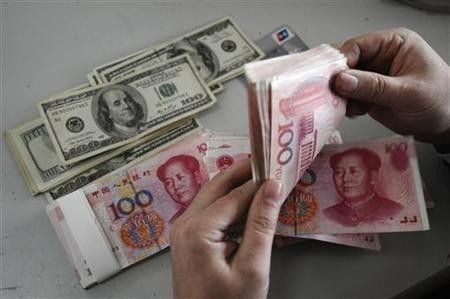How China Might Ease Monetary Policy

The market is expecting that China would loosen its monetary policy in the coming months, and many believe a selective easing has already begun, and that more serious easing will come soon.
Investors have now become more confident of China's policy direction, after seeing a lower inflation print and increased bank lending in October. Almost everyone looks to expect more lending in the coming months, with most expecting significant cuts in reserve requirement ratios (RRR), and some even anticipating a cut in interest rates.
Just how much and how might China ease monetary policy?
There will probably be no big announcement or big policy action. Since the slowdown in China's exports and economy has been gradual, and since the government is still dealing with some of the negative effects of the previous stimulus, we think the government will be cautious not to ease policy too much too soon, UBS economist Tao Wang wrote in a note to clients.
Moreover, relaxing policy is usually much easier than tightening policy in China, as the interests of the central government, local governments and banks are easily aligned in the case of policy easing.
The pressure for the central government to ease policy is already rising as local governments are going through a leadership transition now and new local leaders tend to be more pro-investment in their first year (2012).
Against such a background, the central government may be particularly careful in the next few months to not send too strong an easing signal.
Therefore, as long as there is no sudden collapse of the international financial markets or export demand, China may continue the current mode of policy fine-tuning, gradually let out more bank lending and increase fiscal spending without any big announcement of a stimulus or change of the current prudent monetary policy stance.
In other words, we expect the credit quota to increase to RMB 8 trillion (from a total of 7.3-7.4 trillion in 2011) and the budget deficit to rise to around 2.5% of GDP in 2012 without an obvious shift in rhetoric, said Wang.
A cut in RRR may be necessary, but there is no need to worry about loss of deposits. Observing the apparent loss of retail deposits and capital outflows in October, many investors are worried that banks may not have the necessary liquidity to fund the expected lending increase. As a result, many expected an imminent cut in RRR, and the absence of such a cut has disappointed the market.
On the deposit side, experts think the sharp drop of household deposits in October partially reflects the normal bank practice of moving deposits back to off-balance sheet vehicles after the quarter-end regulatory check, and do not see that as a sign of a worsening trend outflow. In addition, as fiscal spending speeds up, fiscal deposits at the central bank should turn into corporate deposits at commercial banks in the next couple of months.
However, forex reserve accumulation stagnated in the past two months. In October, the estimated forex position at financial institutions dropped by RMB 25 billion and banks had to pay an extra RMB 220 billion in reserve requirements on margin deposits.
Interbank liquidity conditions would have been too tight if the only offset was the central bank's liquidity injection of RMB 89 billion through open market operations. The fact that interbank rates trended down during October suggests that liquidity was not too tight - either fiscal deposits have been drawn down and turned into deposits at commercial banks or capital outflows were not as serious as appeared.
In the next couple of months, if forex flows continue to dry up and the draw-down of fiscal deposits is not sufficient to pump liquidity into the system, the central bank may need to cut RRR, perhaps even before end 2011. Otherwise, an RRR cut may not be necessary to get bank lending to increase.
In other words, we do expect China to ease monetary policy, but it may not come with a big announcement or significant RRR cuts, said Wang.
We do not expect any interest rate cut in the next 12 months in any scenario - the real deposit rate would barely rise to zero even as we expect CPI inflation to drop to 3.5% in 2012; and in any case, China manages its monetary policy mainly by controlling base money supply and credit quotas, not by adjusting interest rates, he added.
© Copyright IBTimes 2024. All rights reserved.





















